Best of 2007: World
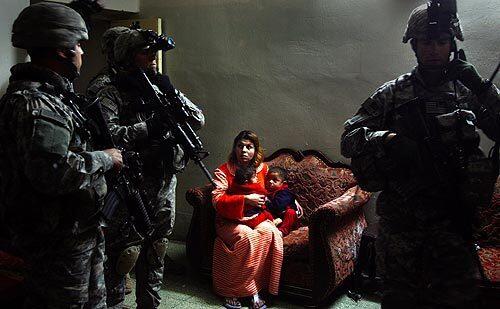
In Iraq, the search for insurgents sometimes takes U.S. troops into homes. Soldiers went into a living room in Baghdad one night in search of a kidnapping suspect and found a woman who, after much questioning, admitted she was the man’s wife. A subsequent search revealed that the woman was wearing two bras; inside were two 9-millimeter pistol ammunition magazines and a cellphone. Inside her panties was a second cellphone. (Rick Loomis / Los Angeles Times)
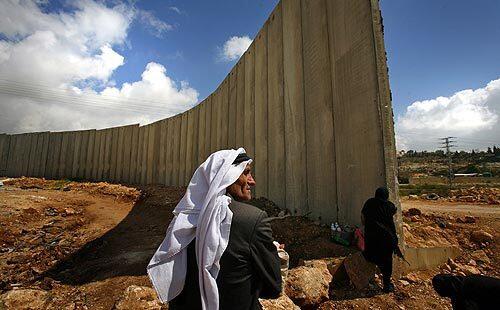
At a break in the Israeli-built border wall, Palestinians wait for police to leave so they can cross from the West Bank town of Bir Nabala into Jerusalem. For many, moving back into the city is an act of nationalism. (Brian Vander Brug / Los Angeles Times)

Jews pray at the Western Wall in the Old City of Jerusalem. (Brian Vander Brug / Los Angeles Times)
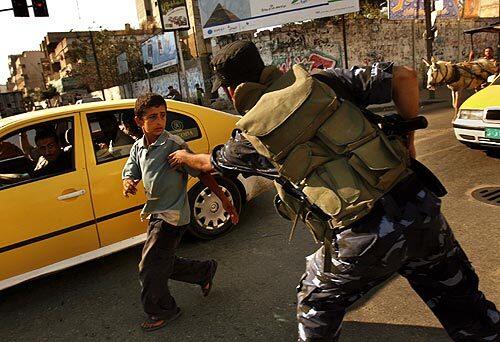
Hamas, the Islamic militant movement, took control of the Gaza Strip, and members of its Executive Force took to the streets as patrol officers. Here, a member of the Executive Force pulls a child off a street and back onto a sidewalk. (Carolyn Cole / Los Angeles Times)
Advertisement
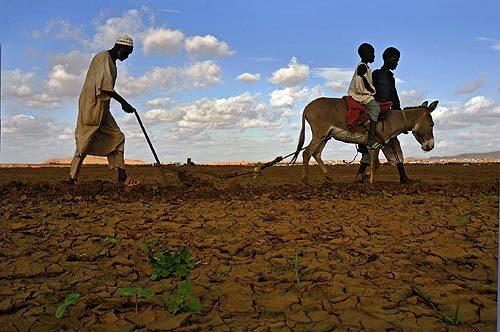
The war in Darfur, in western Sudan, continues to take a toll. Natural resources are endangered; forests were chopped down long ago, and water is in short supply. Displaced farmers find a tough go of it on the cracked soil. (Carolyn Cole / Los Angeles Times)
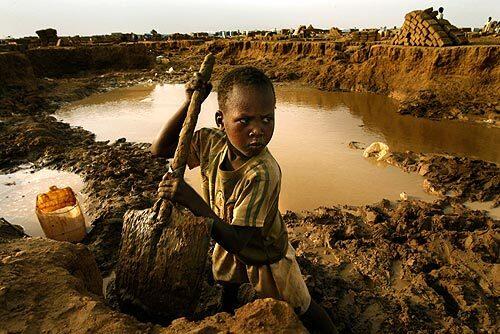
Drinking water is running short at the Abu Shouk camp in Darfur, partly because so much water is used to create mud for a booming brick-making enterprise. Six-year-old Buhari Ibrahim, whose father was killed by pro-government militiamen, tries to earn money by shoveling mud. (Carolyn Cole / Los Angeles Times)
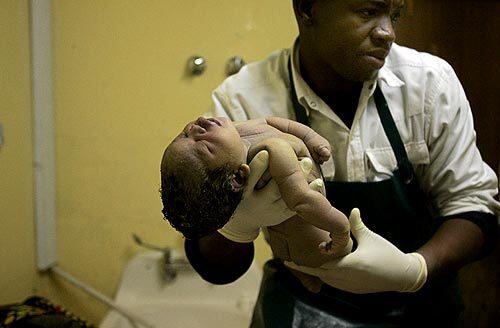
Priorities. They can save lives -- but do they also cost lives? The Bill & Melinda Gates Foundation has given $8.5 billion to global health causes, protecting millions of children from scourges such as malaria and measles and helping to slow AIDS deaths in much of Africa. But a Times investigation shows that focusing on certain diseases has had mixed influences on key measures of societal health. Here, in the south African nation of Lesotho, nurse-midwife Lillo Kuape rushes barely breathing newborn Mankuebe Nyoba to a hospital’s intensive-care nursery. A single valve allows six babies at a time to share oxygen, but lack of a second $35 valve meant there was no oxygen for Mankuebe, and she died. (Francine Orr / Los Angeles Times)

Women who live at Abu Shouk camp in the Darfur region of Sudan must travel for miles to gather wood for cooking. Deforestation and drought have left the land barren in a region where the population has grown fivefold over the last 50 years. (Carolyn Cole / Los Angeles Times)
Advertisement
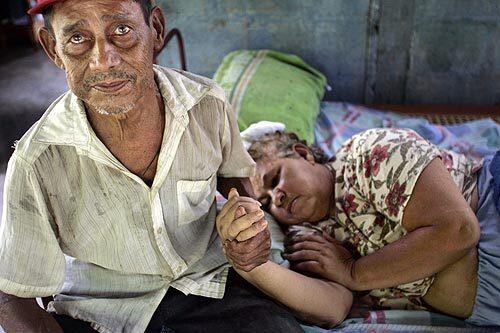
Nicaraguan farmworkers sued U.S. companies, charging that they were sickened by pesticides. Primitivo Presentacion Perez, left, who worked for 25 years at a banana plantation, visits Leticia Vidabre, his ailing former co-worker. She died of kidney failure less than a month later. (Annie Wells / Los Angeles Times)
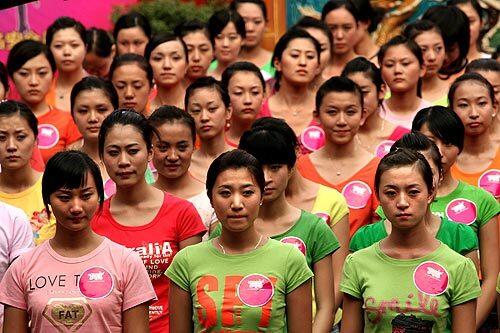
To become a flight attendant on China Southern airlines, China’s largest carrier, young women must be taller than average and have nice legs and other physical attributes. Demand for new flight attendants is so great it has spawned a cottage industry of academies to produce cabin crews. (Carolyn Cole / Los Angeles Times)







